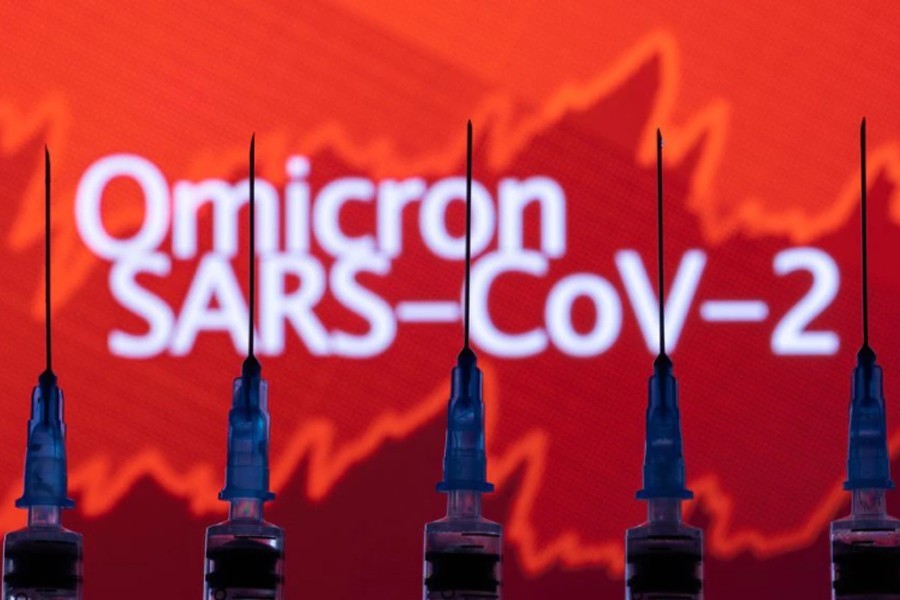
Published :
Updated :

The World Health Organisation (WHO) on November 26 designated the new variant of the SARS-CoV-2, B.1.1.529 as Omicron. Emergence of this yet another Variant of Concern (VOC) was reported from South Africa. The global attention is now focused on Omicron, the most transmissible variant of the coronavirus known so far. But how concerned should the world be? The question of concern is actually related more to the severity of the condition of a person infected by the new variant than to how fast it can spread. At least a few weeks' study is required to have an understanding of how severe is an infection. The condition of infected people depends on a host of factors which may range from their age group to the status of their vaccination to the underlying medical condition of the case to the socioeconomic condition of the population the infected people belong to. Other issues including the ethnic characteristics of the infected individuals may also factor in. So, a rational reaction to a new variant of the coronavirus should be to wait for the experts' view on the severity of the new variant. Once bitten, twice shy. From the previous experiences of different variants, a number of countries have promptly imposed travel ban. As expected, travelers from South Africa and a few other countries in the Southern Africa top the list of the bans so imposed. Obviously, South Africa, in particular, has resented such attitude on the part of the governments that have slapped ban on travels from that country.
Though first detected in Botswana, the irony is, it is the South African scientists who first identified the new variant Omicron and reported it to WHO. But far from being thankful to that country for the discovery and making the rest of the world aware of the new variant, it is being punished. Condemning the travel ban, the country's president, Cyril Ramaphosa, has said, 'We are deeply disappointed by the decision of several countries to prohibit travel'. WHO, on the other hand, has warned that such knee-jerk reaction may impact negatively on sharing of information, data and sample from researchers of the infected country. Technical lead of the COVID-19 response and the head of emerging diseases and zoonosis at WHO, Maria Van Kerkhove, for example, said the travel ban 'have caused some challenges for those samples to actually be shipped out of the country'. Meanwhile, the National Institute for Public Health and the Environment (NIPHE) in the Netherlands reported that Omicron was already in that country before South Africa informed WHO of it. In fact, Dutch NIPHE's retests of the samples taken on November 19 and 23 came up with the findings. Nigeria's national public health institute, on the other hand, informed on December 01 that they detected the variant (Omicron) as early as in October. But Nigeria is situated on the WesternCoast of Africa, not in the South! So, the question is why single out South Africa or the southern part of the African continent as the target of travel restrictions? Some African leaders have criticized, especially, the West for 'Afrophobia' and being discriminatory. The African leaders have also other reasons to take umbrage against the West in particular. First, the Western governments signed deals with pharmaceutical companies that developed the vaccines so they could stockpile billions of doses of the vaccine.
This is what the WHO chief termed 'vaccine nationalism'. Such stockpiling of vaccines by the rich Western countries lies at the root of the vaccine inequity globally. And the vaccine inequity is also the reason why the pandemic is refusing to leave as it finds no shortage of unvaccinated population to infect and mutate into new variants.
In the present case, more research is needed on Omicron's ability to evade neutralising antibodies-immune responses caused by vaccination or prior infection. Information on the rate of hospitalisation from Omicron-infection and fatalities from it have to be gathered first. But whatever the research findings, observance of the basic health protocols and vaccination must continue at all cost.


 For all latest news, follow The Financial Express Google News channel.
For all latest news, follow The Financial Express Google News channel.